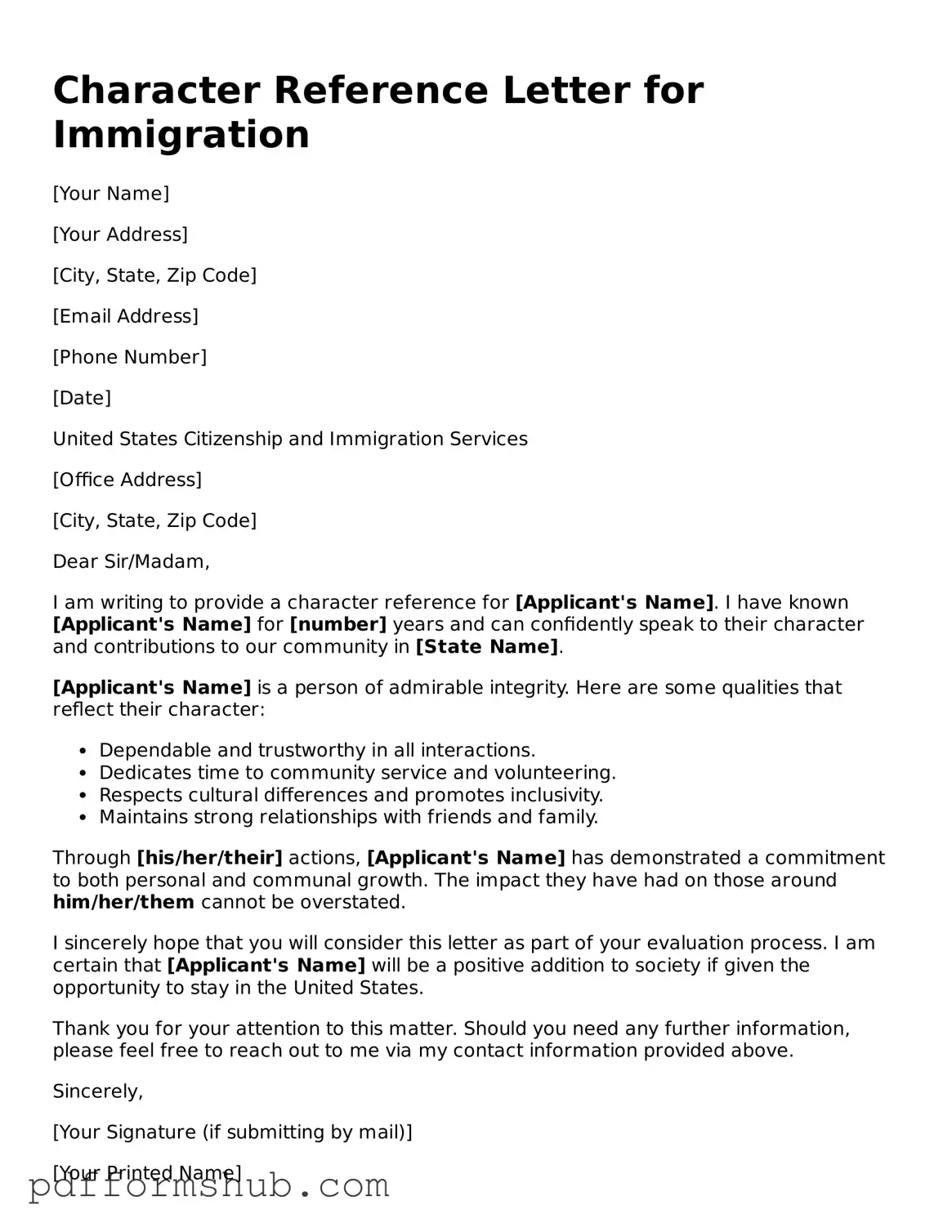Valid Character Reference Letter for Immigration Form
The Character Reference Letter for Immigration is a document that supports an individual's application for immigration by providing insights into their character and contributions to the community. This letter can be crucial in demonstrating the applicant's good moral character and suitability for residency. Consider filling out the form to strengthen your immigration case by clicking the button below.
Customize Form

Valid Character Reference Letter for Immigration Form
Customize Form

Customize Form
or
Free PDF Form
Short deadline? Complete this form now
Complete Character Reference Letter for Immigration online without printing hassles.